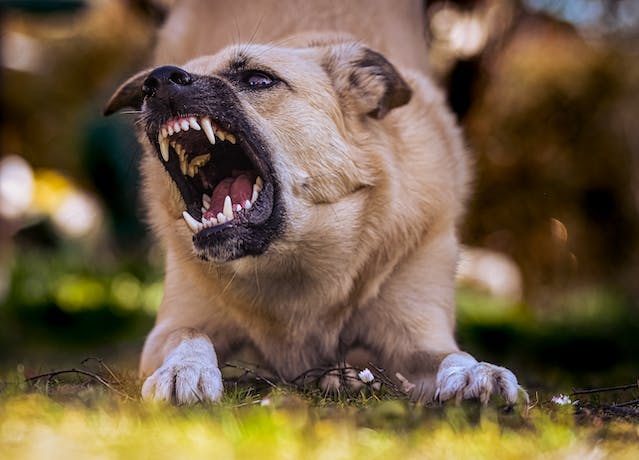In India, approximately 18,000 to 20,0000 people die every year due to rabies.
- 40% of these deaths are children
- India has as estimated 35 million dogs, with the majority of them are strays
- A person is bitten by a dog every two seconds in India
- There were 4,146 reported cases of dog bites leading to human deaths in 2019
WHO is aiming for zero rabies deaths by 2030, but it’s a tricky goal that requires vaccination of both humans and dogs. Achieving this is high cost and effort. How do you vaccinate tens of millions of dogs, and 1.3 billion humans, when there are other important issues and limited funds?
India’s national guidelines for rabies treatment include rabies vaccinations for both dogs and humans. There are no formal dog management laws, but an expectation that stray dogs will be trapped, neutered, and vaccinated. These dog control measures were carried out in Mumbai, and resulted in a drop in rabies, so it can work, but it takes money, time, and huge effort.
What is Rabies?
Rabies has been present in India since at least the Vedic period (1500-500BC). In the Atharvaveda, Yama was always accompanied by two dogs. These were the representatives of death, and some have wondered if this was due to the link between dogs and rabies.
Rabies is a disease that animals can pass onto humans. It can be carried by dogs, bats, monkeys, cats, squirrels, goats, horses, cattle, mice—almost any mammal. However, an estimated 96% to 99% of transmission in India is from dogs.
It’s transmitted via saliva from the animal, through a cut or wound. While we imagine a rabid dog biting, it could be as easy as a friendly lick to an outstretched hand that has a slight graze or cut. The virus then moves through your body in your nerves, until it gets to your brain. It damages the brain, and this leads to death. The virus also strengthens the barrier between the brain and the blood, making it harder for medication to treat it, so nothing can get through.
It’s important to remember an animal can have rabies and not show any signs. It can take 3 to 12 weeks for the virus to reach the brain. The dog can transmit the virus in this time and have no symptoms themselves.
What Happens If I Get Rabies and Don’t Get Vaccinated?
Most people who contract the virus die. It is an extremely painful death, with symptoms including things like seizures, paralysis, fear of water, and foaming at the mouth. Once the symptoms of rabies appear, the disease is likely fatal, with only 20 survival cases worldwide documented.
Is the Rabies Vaccine Effective?
There are two ways to vaccinate.
If you get a vaccine as a preventative measure before any bite occurs, it’s just two vaccines taken seven days apart. Then, generally there’s a booster recommended within three years. This may provide lifelong immunity, but you’ll need to be tested (titers) to ensure there are antibodies present.
If you are getting a vaccine after a bite or exposure, there are a series of FIVE vaccines. One on day zero (within 24 hours of the event), and then another one on days 3, 7, 14, and 30. Your medical professional may also advise you to get the human rabies immune globulin (HRIG) shots around the wound. This provides antibodies to destroy the virus at the site of entry.
If A Dog Has Been Vaccinated, Do I Still Need a Vaccine?
Unfortunately, yes, it’s likely you’ll still need a vaccination. The dog will need to be tested to see if they have rabies antibodies. If they don’t, then it’s as though the animal wasn’t vaccinated. They need a vaccine done every one to three years in order for it to be effective. Even if the dog has a vaccine certificate, you’ll need to get it tested, and the results may take some time to arrive. Therefore, you’ll need at least the first vaccine in the series, as this is required within the first 24 hours after the bite.
Should I Get My Child Vaccinated for Rabies in India?
The Indian Academy of Paediatrics (IAP) recommends children are vaccinated before a bite occurs. However, this is voluntary and not done as standard practice. High risk people like veterinarians, dog catchers, are advised to get it done. Take the advice of your peadiatrician.
If you’re visiting India and are likely staying in metros with good healthcare access, then it’s not needed. If you still wish to get it done, the cost of the vaccine in India is considerably cheaper than overseas (around RS400 each) and is usually readily available.
What Should I Do If I or My Child Is Bitten or Scratched by A Dog?
If you or your child was bitten or scratched by a dog, monkey, bat, or even cat, wash the wound immediately with soap and water for 15 minutes. Then, disinfect with 80% alcohol or povidone-iodine. Then seek medical opinion straight away. The first vaccine must be given within 24 hours in order to ensure effectiveness.
If you’ve been vaccinated before, you won’t need the HRIG vaccine. But, you will still need two vaccinations on day zero and three.
Can I Apply Medicines At Home for Rabies Treament?
Applying chilli, lime, salt, or mustard to the wound will not help, and may cause the wound to become infected. Nothing except the series of vaccines is effective in stopping rabies.
What happens if you miss one of the rabies vaccines?
A delay of one or two days once the vaccine schedule is started is ok, but should be resumed as normal as quickly as possible. If an entire vaccine is missed or the schedule of vaccinations isn’t completed, the effectiveness of the vaccine may be compromised.
What are the side effects of the vaccine?
As with all vaccines, there can be side effects. Soreness and bruising at the site, joint pain, mild fever, and hives may occur. If you experience problems, the course of vaccines still needs to be completed. Anti-inflammatory or painkiller medication may help.
Where is the vaccine administered?
In adults, in the arm, in children, in the thigh. Gluteus vaccines are not advised and may not deliver the protection needed.
Can you switch brands of rabies vaccine in the series?
It’s not advised. In India, a number of different brands are allowed to be used, and they may not work in the same ways. When possible, the same brand should be used for the full course of treatment.
If you’ve had the series of five vaccines, are you immune to rabies?
After all that effort, unfortunately, no. you’ll still need two shots if you get bitten again.
It’s important to remember that in India, rabies is common, and it’s a killer. Advice for other countries doesn’t apply here. The other important thing to know is that rabies is fatal, with no known cure. Once symptoms show, the outcome is death.
While the odds of getting rabies is low, the outcome of not treating a potential bite and getting rabies is death.

